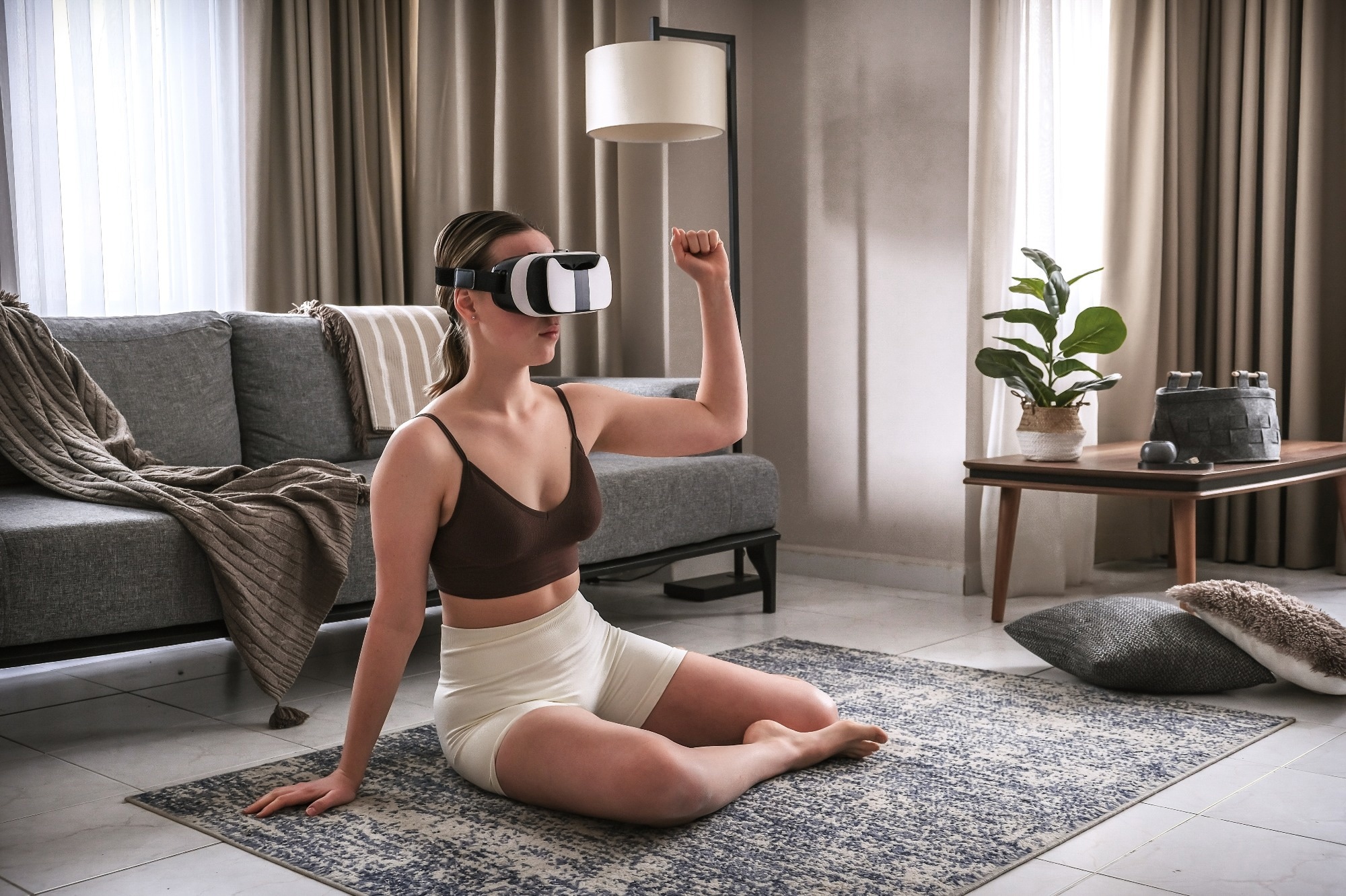Their findings indicate that VR exercise sessions can significantly improve mood and performance at working memory tasks more than exercise or rest alone, suggesting VR exercise could be an optimal program to enhance working memory function and potentially prevent depression and dementia.
 Study: Exercising with virtual reality is potentially better for the working memory and positive mood than cycling alone. Image Credit: Shyntartanya/Shutterstock.com
Study: Exercising with virtual reality is potentially better for the working memory and positive mood than cycling alone. Image Credit: Shyntartanya/Shutterstock.com

 *Important notice: bioRxiv publishes preliminary scientific reports that are not peer-reviewed and, therefore, should not be regarded as conclusive, guide clinical practice/health-related behavior, or treated as established information.
*Important notice: bioRxiv publishes preliminary scientific reports that are not peer-reviewed and, therefore, should not be regarded as conclusive, guide clinical practice/health-related behavior, or treated as established information.
Background
Previous research has established that physical activity benefits mental and physical health, with aerobic fitness particularly linked to the maintenance of executive function.
While some studies have shown that transient exercise can improve executive function, inconsistent findings suggest that additional factors may be at play.
Studies exploring the relationship between exercise, mood enhancement, and executive function have indicated a potential link between improved cognitive performance and pleasant mood.
VR environments, known for their ability to elicit pleasantness and arousal while performing exercise, are emerging as a promising tool to promote physical activity.
Despite evidence suggesting that exercising in VR environments induces positive mood and may enhance executive function, there is currently little clarity regarding its efficacy compared to traditional exercise and its underlying neural mechanisms.
About the study
In this study, researchers aimed to address existing research gaps by investigating the impacts of VR exercise on executive functioning and its neural correlates using functional magnetic resonance imaging (fMRI).
Researchers assessed brain activity during an N-back task, which was used to evaluate working memory function and determine whether VR exercise can enhance executive function through increased activity in targeted brain regions, particularly the dorsolateral prefrontal cortex (DLPFC).
The study recruited twenty-five healthy young Japanese adults with normal or corrected-to-normal vision, conducting a power analysis to determine sample size sufficiency.
Participants underwent a graded exercise test to measure peak oxygen uptake (VO2peak) and practiced the N-back task before engaging in the main experimental conditions.
Three experimental conditions were utilized: exercise without head-mounted display (HMD), exercise with HMD (VR), or rest without HMD.
All participants completed all conditions on separate days, with the order counterbalanced. The N-back task, assessing working memory function, was performed before and after 10-minute fMRI exercise sessions.
Cardiorespiratory aerobic fitness was assessed using a graded exercise test, and psychological measurements, including rating of perceived exertion (RPE) and Two-Dimensional Mood Scale (TDMS), were recorded.
fMRI data were analyzed using Statistical Parametric Mapping (SPM12), including preprocessing and statistical analysis.
Neural activity during task performance was modeled using a general linear model, with regions of interest (ROIs) defined using the automated anatomical labeling atlas 3 (AAL3) for correlation analysis between task performance and brain activity.
Findings
All participants were able to complete the tasks without facing any adverse effects.
Physiological parameters like heart rate (HR) and RPE showed significant interactions between conditions and sessions. HR and RPE were significantly higher in the exercise (EX) and VR conditions than in the rest (RS) conditions.
Psychological mood states, including vitality and arousal, were significantly higher in the VR condition compared to RS and EX conditions. Working memory performance, assessed using the N-Back task, showed reduced reaction times after exercise, particularly in VR.
Brain activity, measured through fMRI, revealed activation in several regions during the 3-back task, with overlaps between EX and VR conditions.
However, VR-specific activation was observed in regions like the left insula and left DLPFC. No significant correlations were found between N-back task performance and DLPFC and locus coeruleus (LC) brain activity.
However, vitality was negatively correlated with reaction time in the 3-back task, suggesting that increased vitality was associated with better performance.
Conclusions
The study utilized fMRI to investigate the impact of VR exercise on working memory and mood, focusing on the involvement of the DLPFC and LC.
Their findings indicated that VR exercise enhanced vitality, strengthened working memory, and elevated mood compared to rest and traditional exercise.
However, researchers found no direct correlation between working memory enhancement and LC and DLPFC activity changes.
Future research should explore individual differences, extend findings to diverse populations, and investigate the long-term effects of VR exercise.
While the precise neural mechanisms remain unclear, the study suggests that heightened arousal and positive mood are crucial for enhancing working memory, with VR as a potent factor.
Further exploration into these mechanisms and validation across different demographics is warranted to promote the adoption of VR exercise for enhancing mood and cognitive function.

 *Important notice: bioRxiv publishes preliminary scientific reports that are not peer-reviewed and, therefore, should not be regarded as conclusive, guide clinical practice/health-related behavior, or treated as established information.
*Important notice: bioRxiv publishes preliminary scientific reports that are not peer-reviewed and, therefore, should not be regarded as conclusive, guide clinical practice/health-related behavior, or treated as established information.
Journal reference:
- Preliminary scientific report.
Ochi, G., Ohno, K., Kuwamizu, R., Yamashiro, K., Fujimoto, T., Ikarashi, K., Kodama, N., Onishi, H., Sato, D. (2024) Exercising with virtual reality is potentially better for the working memory and positive mood than cycling alone. bioRxiv. doi: https://doi.org/10.1101/2024.05.07.593030. https://www.biorxiv.org/content/biorxiv/early/2024/05/08/2024.05.07.593030.full.pdf